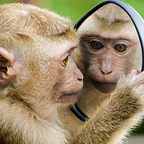Do Early Disney Movies Really Promote Unrealistic Standards for Romance?
Disney has gotten a lot of criticism for perpetuating unrealistic ideas about love and romance such as the idea of love at first sight. It’s gotten to the point that Disney has addressed these criticisms in not only pastiches like Enchanted but more traditional films like Frozen.
Take for example this scene where where Kristoff doesn’t let Anna help him fend off some attacking wolves because, having found out she planned to marry a man she just met, he doesn’t trust her judgment. This is on the heels of what seems like an interminable conversation about why you can’t marry a man you just met.
This is an obvious rebuke to earlier Disney movies where the two leads would fall in love at first sight, or first song.
But in the case of early Disney movies I don’t think the idea that they promote unrealistic romantic standards is completely fair. Modern Disney characters are meant to be fully realized, plausible characters with real human emotions and motivations. If Anna had fallen in love and gotten engaged to someone at first sight, and the movie had presented her decision in a favorable light, you could legitimately say that Disney is pushing unrealistic ideas about romance.
But the early Disney movies don’t have realistic characters. Snow White and the nameless prince, Cinderella and Prince Charming, Aurora and Prince Phillip (the only one with a proper name), these aren’t developed characters, they’re broad archetypes with a few strong identifying characteristics, like Snow White’s kindness. Snow White falls in love with the prince over a song, but she also directs a bunch of squirrels and chipmunks to do the dishes. Why do you think Cinderella spends so much time on the little adventures of a bunch of mice instead of Cinderella’s rich internal life? Compared to more modern Disney movies, the early ones could almost be described as otherworldly, although in a charming, enchanted sense rather than the eery connotation that word usually has.
That’s why I think Enchanted provides a much better critique of this aspect of early Disney movies than Frozen. Frozen just makes fun of the old Disney movies, but Enchanted demonstrates that it understands the otherworldliness of early Disney movies. Its animated opening scenes are so over-the-top that no one could confuse them for a representation of our reality. Giselle’s love at first sight is presented not as some evidence of her foolishness but as something in keeping with the world she lives in, and the film shows how someone from such a world might react to our world and gradually change because of it.
Overt and subtle messaging in movies can influence attitudes and behavior, but I think there are enough signifiers in Snow White, Cinderella, and Sleeping Beauty to show that these movies are removed from our everyday reality. As such, I would imagine that people who watch them wouldn’t be strongly influenced into believing in ideas like love at first sight as a result. Having said that, I don’t have any data to back up these claims and wasn’t able to find any that directly addressed this question. If you are aware of any data on the subject, please leave it in a response because I’d be very interested in seeing it.
If anyone personally believes that they were influenced by early Disney movies into having unrealistic ideas about romance, I’m obviously in no place to say they’re wrong. But I think Disney gets more criticism on this front than is warranted, and I wish they would stop addressing this criticism by disparaging their old movies in their new ones.
